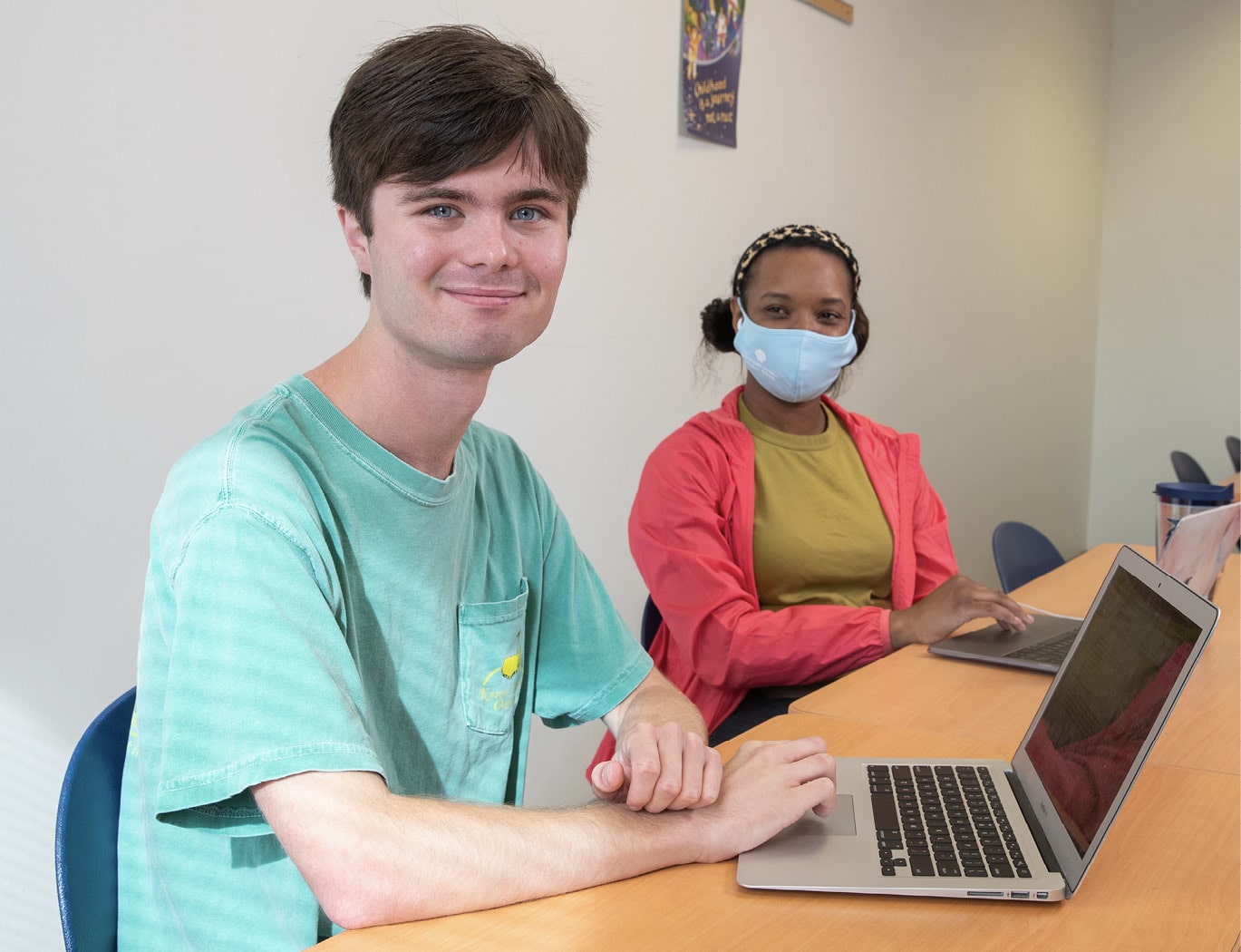Through the Eyes of a Champion
EAGLE Academy Student Max Champion Gains Experience and Independence

Everyone who meets Max Champion comes away with a good feeling.
He’s positive and projects confidence. He smiles and shakes your hand. He looks at you when he talks, and answers questions in a clear, direct manner, with an almost unusual amount of specificity. He has an incredible memory, especially when it comes to sports.
When you converse with Max, you may notice slight differences about him. Maybe it’s in the way he delivers his sentences, the way he’ll repeat something to himself in a whisper or the way he appears to keep the conversation at a distance. But as a neurodiverse young man on the autism spectrum, he is simply processing the world a little differently than you are.
Max is a student in EAGLE Academy at Georgia Southern, where he is learning how to navigate these differences on his own terms. In this living laboratory of the college campus, he is not only getting the college experience, but with the help of Academy staff and peer mentors, he is also developing the skills to live and work independently.
“It’s been good for me,” he said. “The people there are great…they’ve been very helpful to me, always keeping in touch and being on the lookout.”
A Practical Program
EAGLE Academy, now in its fourth year, is an inclusive post-secondary education program offering Equal Access to Gainful Learning and Employment (EAGLE) to students with mild intellectual disabilities. As a certified comprehensive transition program (CTP), the Academy not only provides students with academic training in their areas of interest, but also gives them extensive practical life skills.
“I would say that all the students that come definitely have college aspirations and college goals, and it’s kind of just finding where they can be most successful,” said Julie Pickens, Ph.D., program director of EAGLE Academy. “The end goal is for them to be able to live a self-directed, independent life. So within that, they need to be able to live on their own — cook for themselves, clean for themselves, do those types of things.”
In the classroom, each EAGLE Academy student is helped by peer mentors — third- or fourth-year students from their focus area who help them with academics. On campus, they’re also assisted by peer mentors who help them engage on a social level, accompanying them to games or events and helping them connect with campus organizations if they choose.
In addition, Pickens works with each student and their parents to make a life plan, complete with five- and 10-year goals related to academics, lifelong learning, community engagement, independent living, self-determination and career.
Pickens said the question then becomes, “What can you do while you’re here in EAGLE Academy to get you where you want to be?”
A Big Change
Chip and Caroline Champion weren’t sure what the future held for Max, their firstborn child, but they worked hard to give him all the tools he needed to succeed.
As a child in St. Simons Island, Georgia, Max and his family traveled to Nemours Children’s Hospital in Orlando, where he received several interventional therapies to help him with early language delays. He spent his entire education at Frederica Academy, where the Champions secured the help of dedicated tutors to help Max with his lessons in school.
“He always thrived there socially in particular,” said Caroline. “He loves to be a part of something. He made friends easily and assimilated very well. And even though we weren’t sure if he could always hang in there academically, we knew it was the place for him — for his mind, body and spirit.”
At home, Max enjoyed a very social environment as well, where his mother says they were “having friends over all the time and constantly going and doing.” At school, he got involved with sports. He was a member of the high school baseball team, and he served as team manager for just about every other sport.
“The football coach sought him out to be a part of the team so the football players could realize, ‘Hey, there are different types of people in this world. Be grateful for your gifts. You can learn something from him and he can learn something from you,’” recounted Caroline. “He was so loved by his teammates and so proud to be participating in varsity sports.”
Once Max received his high school certificate, the Champions began looking at other opportunities for him. When his mother found the program at Georgia Southern, she was ecstatic.
“It was so much more appealing because it wasn’t this huge university and it was so close to home — only a couple hours drive,” she said. “We just thought, ‘Location and size…this is going to be perfect!”
Max entered EAGLE Academy with gusto. He lived in Centennial Place, a campus residence hall. He chose a dual focus in sport management and logistics, reconnected with high school friends from home, and even joined the Kappa Alpha fraternity. He did all of this in one of the most challenging years for the University and its students, right in the middle of a pandemic.
“It was a big change for me,” said Max. “I’ve had a mix of online and in-person my whole year. I mean, we had to wear masks inside. There wasn’t a whole lot of people walking on campus. We had to do our [fraternity initiation] online.”
Despite the challenges, Pickens and the Champions say Max is thriving. This year, he’s a big brother to new fraternity recruits. He’s an intern with GATA Lifestyle, Georgia Southern’s sports marketing group, and he’s living off-campus in an apartment.
“Max has shown great progress with his career readiness, his independent living skills, and I have no doubts that he’s going to find a job and be successful,” said Pickens. “He’s done fantastic.
“I think the sky’s the limit with Max with the foundation he’s been able to build and sustain.”
An Opportunity to Help
Since its inception, EAGLE Academy has graduated nine students, many of whom have gone on to secure jobs and continue living independently. One graduate was recently married.
Parents who didn’t envision an autonomous future for their children are now seeing them strike out on their own and make their own way in the world. However, the program is still trying to find ways to include even more students, who pay the same tuition, housing, dining and fees that typical students pay, but don’t have access to the same financial aid.
“Yeah, the price tag can be pretty big,” said Stephanie Devine, Ph.D., executive director of EAGLE Academy. “The challenge we are facing at this point is most of these families were never thinking about college in the first place. They didn’t think their student would have access to that kind of experience, so they didn’t have a college fund set aside. And so we are running into that challenge of students who don’t have a lot of means and trying to help them still get the opportunity here.”
Devine says the program depends on support from donors to their EAGLE Academy foundation account (GS0014), which helps offset costs for its students. It also depends on relationships with area businesses who can provide internship opportunities for students, a key part of their training.
A College Kid
On a typical Tuesday morning, Max meets with his peer mentor for life skills training and to touch base with him on his schedule. He is extremely regimented. Monday, Wednesday and Friday he’s in his focus area classes. Tuesday and Thursday morning he meets with Pickens and his peer mentor, and in the afternoon goes to his internship, where he uploads videos and tags them for search and engagement.
The rest of the time? He hangs out with friends, goes to fraternity meetings and events, plays a few rounds of golf at the Georgia Southern course and enjoys college life.
“I’m really excited about life,” he said. “I love my life right now and I’m just excited for more life coming up in the future.
“I like being the college kid,” he added. “It’s a good time.” — Doy Cave
